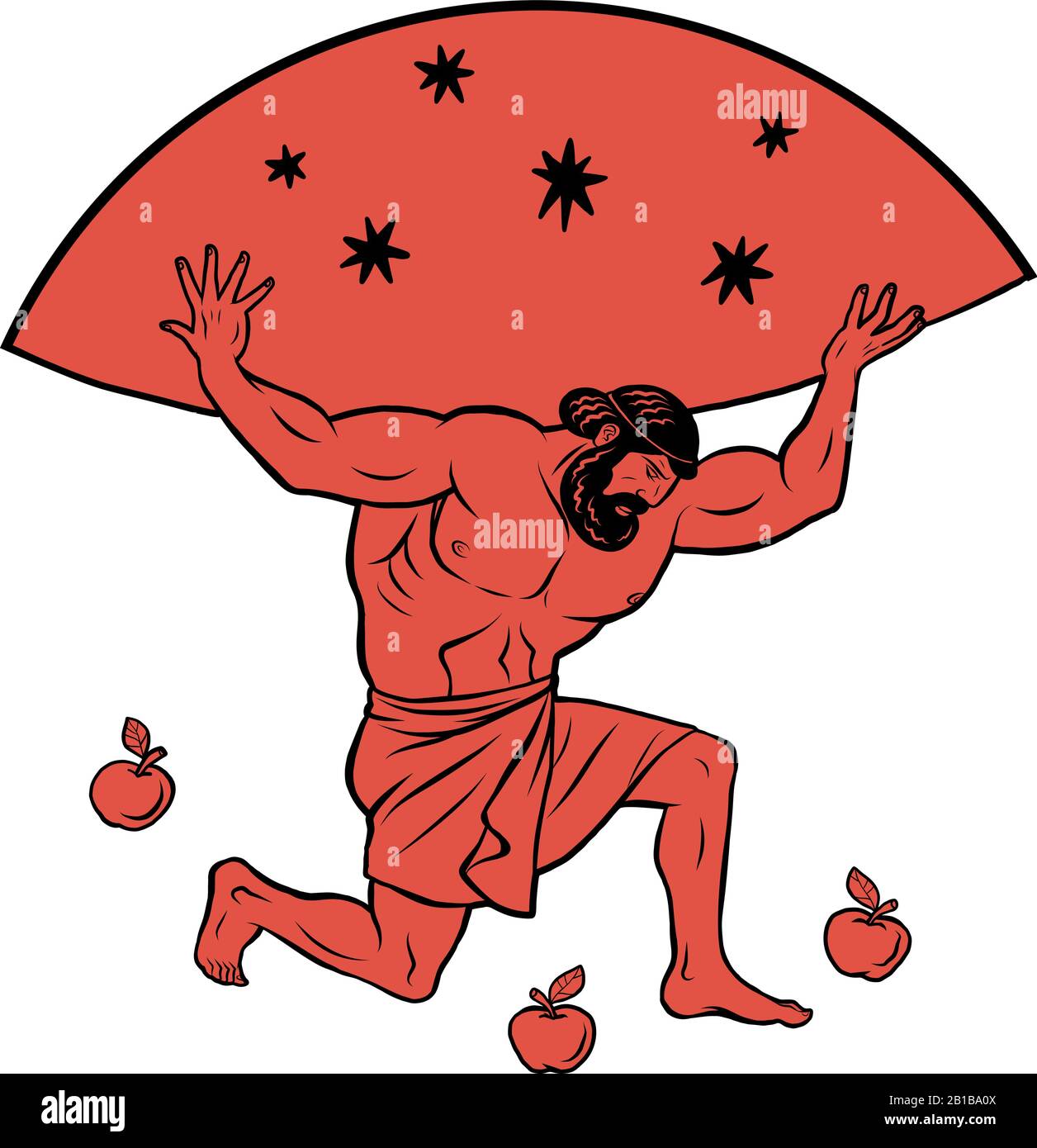

Aldrich) (Greek mythographer C2nd A.D.) : daughters of Nyx (Night), guarded the golden apples beyond Okeanos (Oceanus) : ‘Aigle and Erytheia and ox-eyed Hesperethoosa.’" Hesiod, Doubtful Frag 3 (from Servius on Vergil's Aeneid 4. Also deadly Nyx bare Nemesis (Envy) to afflict mortal men, and after her, Apate (Deceit) and Philotes (Friendship) and hateful Geras (Old Age) and hard-hearted Eris (Strife)." Also she bare the Moirai (Fates) and the ruthless avenging Keres (Death-Fates). And again the goddess murky Nyx, though she lay with none, bare Momos (Blame) and painful Oizys (Misery), and the Hesperides who guard the rich, golden apples and the trees bearing fruit beyond glorious Okeanos (Oceanus). "And Nyx (Night) bare hateful Moros (Doom) and black Ker (Violent Death) and Thanatos (Death), and she bare Hypnos (Sleep) and the tribe of Oneiroi (Dreams). Evelyn-White) (Greek epic C8th or C7th B.C.) : Hesperides and the golden apple tree, Athenian red-figure hydria C5th B.C., British Museum CLASSICAL LITERATURE QUOTES PARENTAGE & NAMES OF THE HESPERIDES I. Source: Dictionary of Greek and Roman Biography and Mythology. In their watch over the golden apples they were assisted or superintended by the dragon Ladon. 10), or even to the northern extremity of the earth, beyond the wind Boreas, among the Hyperboreans. 742) but the later attempts to fix their abodes, and the geographical position of their gardens, have led poets and geographers to different parts of Libya, as in the neighbourhood of Cyrene, Mount Atlas, or the islands on the western coast of Libya (Plin. 1399.) In the earliest legends, these nymphs are described as living on the river Oceanus, in the extreme west (Hes. init.) The poets describe them as possessed of the power of sweet song.

Hespere, Erytheis, and Aegle, Arethusa, and Hesperusa or Hesperia (Apollon. 742.) Instead of the four Hesperides mentioned above, some traditions know only of three, viz. 27), and sometimes of Hesperus, or of Zeus and Themis. 1399), sometimes of Atlas and Hesperis, whence their names Atlantides or Hesperides (Diod. init.), sometimes of Phorcys and Ceto (Schol. Their names are Aegle, Erytheia, Hesperia, and Arethusa, but their descent is not the same in the different traditions sometimes they are called the daughters of Night or Erebus (Hes. HESPE′RIDES (Hesperides), the famous guardians of the golden apples which Ge had given to Hera at her marriage with Zeus. EURYTION (Stesichorus Geryoneis Frag S8) ASTEROPE, KHRYSOTHEMIS, LIPARA (Vase Painting N14.1) OFFSPRING OF ERYTHEIA AIGLE, HESPERIE, AERIKA (Hyginus Preface) AIGLE, ERYTHEIS, HESPERE (Apollonius Rhodius 4.1390) AIGLE, ERYTHEIS, HESPERIE, ARETHOUSA (Apollodoros 2.113) AIGLE, ERYTHEIA, HESPERETHOOSA (Hesiod Doubtful Frag 3) PHORKYS & KETO (Scholiast on Apollonius Rhodius 4.1399) NAMES ZEUS & THEMIS (Servius on Virgil's Aeneid 4.484) HESPEROS (Scholiast on Euripides Hippolytus) ATLAS (Pherecydes Frag, Hyginus Astronomica 2.3) ATLAS & HESPERIS (Diodorus Sicululs 4.26.2) EREBOS & NYX (Hyginus Pref, Cicero De Natura Deorum 3.17) The three nymphs and their glowing, golden apples were regarded as the source of the golden light of sunset-a phenomena which celebrated the bridal of Zeus and Hera, the king and queen of heaven. Perseus obtained from them the artifacts he needed to slay the Gorgon Medousa (Medusa). The Hesperides were also the keepers of other treasures of the gods. Athena later returned them to the Hesperides. Herakles was sent to fetch the apples as one of his twelve labours and, upon slaying the serpent, stole the precious fruit.


They were assisted by a hundred-headed guardian- Drakon (Dragon). The Hesperides were entrusted with the care of the tree of the golden apples which was had been presented to the goddess Hera by Gaia (the Earth) on her wedding day. They were the daughters of either Nyx (Night) or the heaven-bearing Titan Atlas. THE HESPERIDES were the goddess-nymphs of evening and the golden light of sunsets. Of the Evening ( hesperos) Hesperid-nymph Lipara, Athenian red-figure hydria C5th B.C., British Museum


 0 kommentar(er)
0 kommentar(er)
